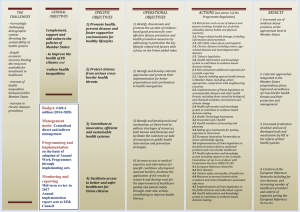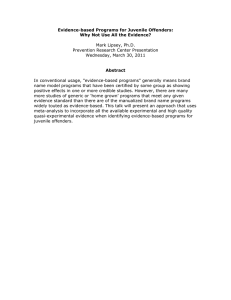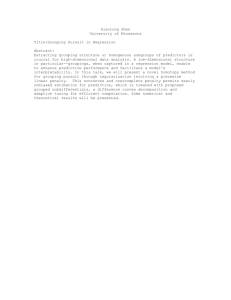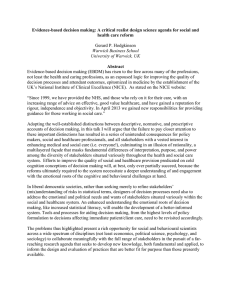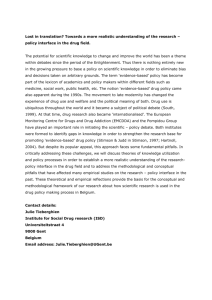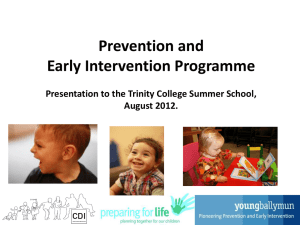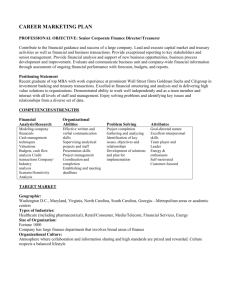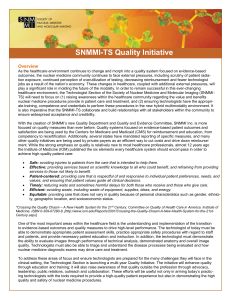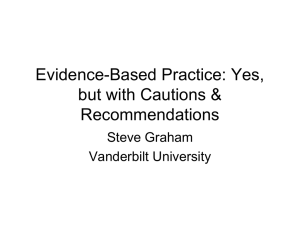Central Questions and Fundamental and Powerful Concepts
advertisement
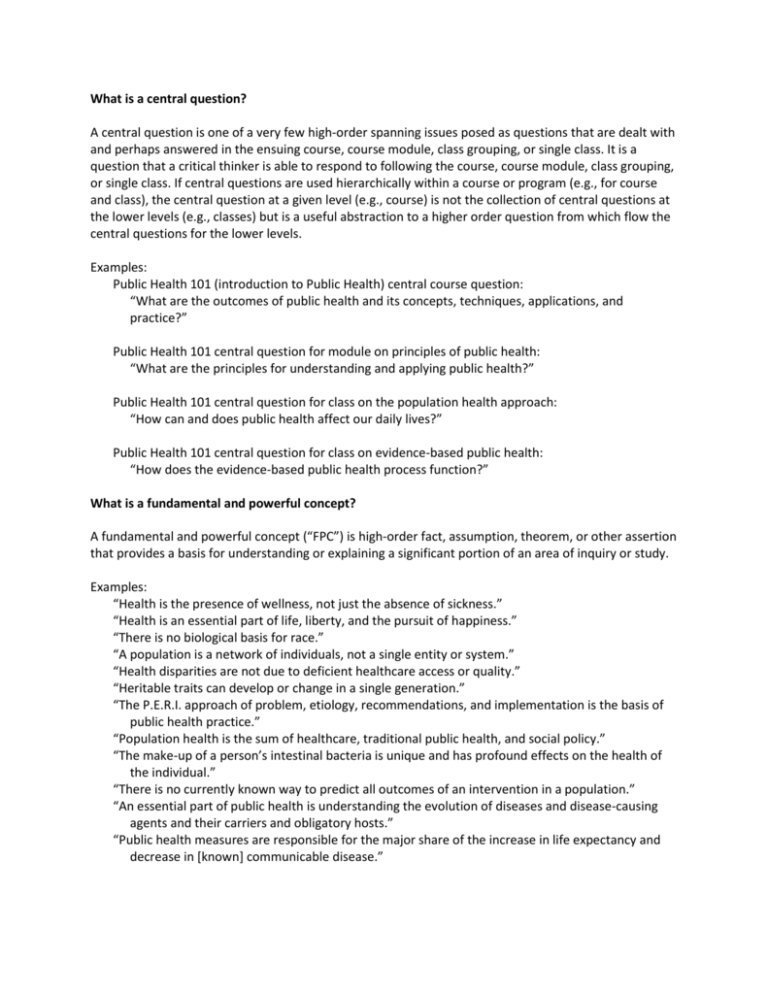
What is a central question? A central question is one of a very few high-order spanning issues posed as questions that are dealt with and perhaps answered in the ensuing course, course module, class grouping, or single class. It is a question that a critical thinker is able to respond to following the course, course module, class grouping, or single class. If central questions are used hierarchically within a course or program (e.g., for course and class), the central question at a given level (e.g., course) is not the collection of central questions at the lower levels (e.g., classes) but is a useful abstraction to a higher order question from which flow the central questions for the lower levels. Examples: Public Health 101 (introduction to Public Health) central course question: “What are the outcomes of public health and its concepts, techniques, applications, and practice?” Public Health 101 central question for module on principles of public health: “What are the principles for understanding and applying public health?” Public Health 101 central question for class on the population health approach: “How can and does public health affect our daily lives?” Public Health 101 central question for class on evidence-based public health: “How does the evidence-based public health process function?” What is a fundamental and powerful concept? A fundamental and powerful concept (“FPC”) is high-order fact, assumption, theorem, or other assertion that provides a basis for understanding or explaining a significant portion of an area of inquiry or study. Examples: “Health is the presence of wellness, not just the absence of sickness.” “Health is an essential part of life, liberty, and the pursuit of happiness.” “There is no biological basis for race.” “A population is a network of individuals, not a single entity or system.” “Health disparities are not due to deficient healthcare access or quality.” “Heritable traits can develop or change in a single generation.” “The P.E.R.I. approach of problem, etiology, recommendations, and implementation is the basis of public health practice.” “Population health is the sum of healthcare, traditional public health, and social policy.” “The make-up of a person’s intestinal bacteria is unique and has profound effects on the health of the individual.” “There is no currently known way to predict all outcomes of an intervention in a population.” “An essential part of public health is understanding the evolution of diseases and disease-causing agents and their carriers and obligatory hosts.” “Public health measures are responsible for the major share of the increase in life expectancy and decrease in [known] communicable disease.”
